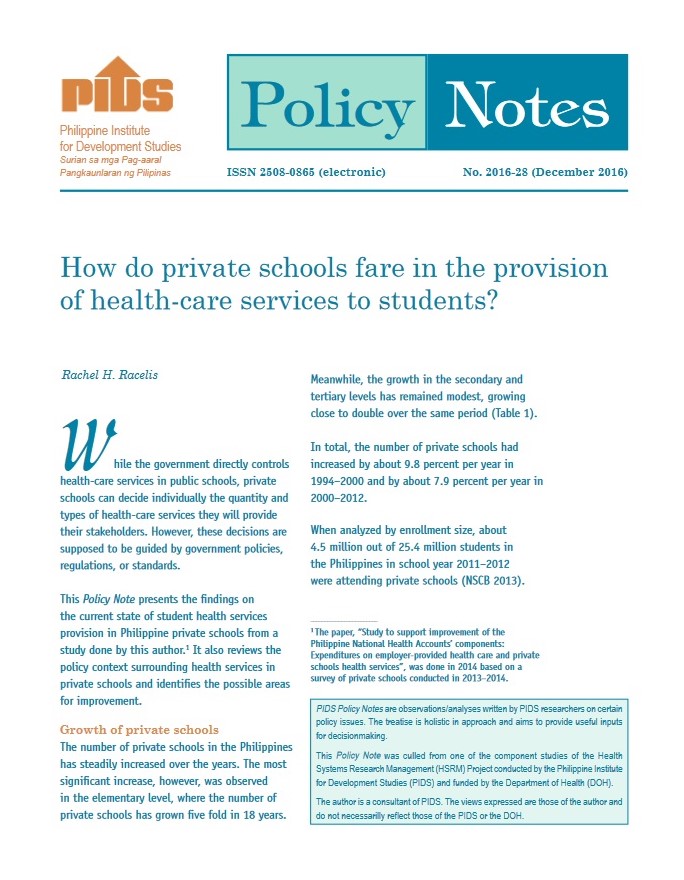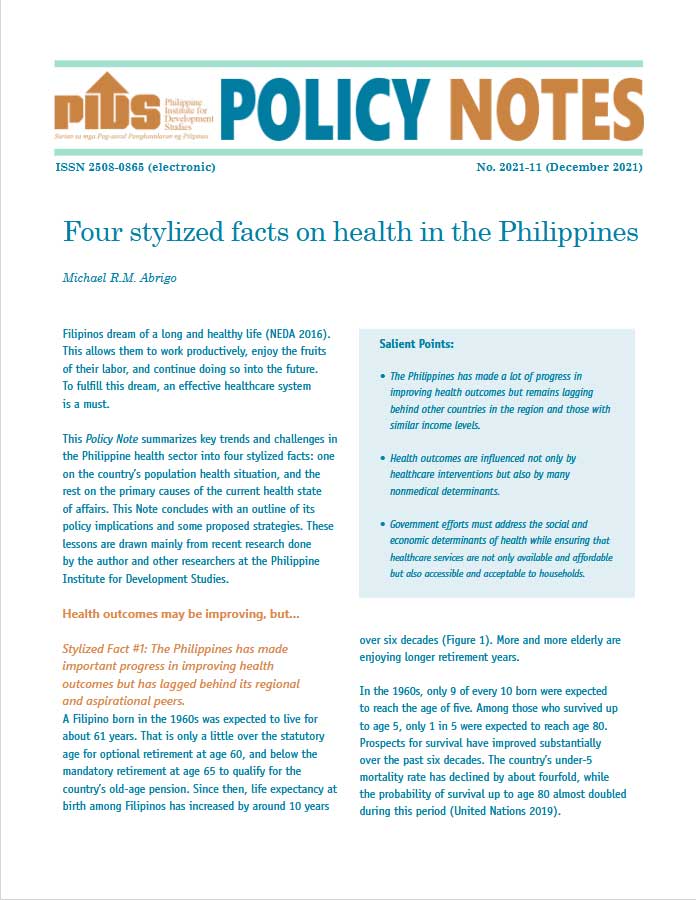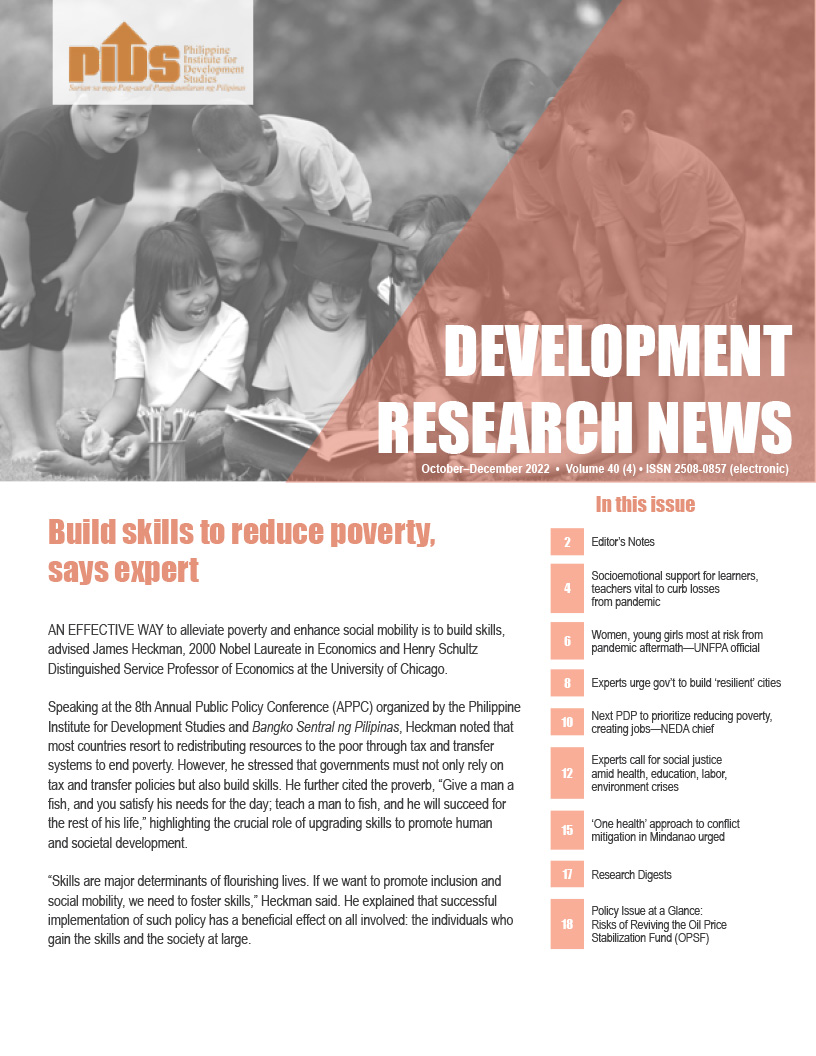Oscar F. Picazo, senior health research consultant of the Philippine Institute for Development Studies (PIDS), has revealed a worsening health conditions in the country as he stressed the need to craft a policy that will make health care more "inclusive.” Maternal health alone – which serves as a good indicator of the health system as it covers the entire spectrum of the referral scheme – is not improving as shown by a spike in the maternal mortality ratio to 221 maternal deaths per 1,000 live births in 2011, said Picazo. "Before that, the ratio had declined steadily to 161 in 2006 from 209 in 1990, based on government statistics. The infant mortality ratio, meanwhile, is decreasing but not as fast as neighbors in the region, Picazo said. "Reproductive health has something to do with this. There’s still a high number of children per woman… Unwanted pregnancies are high among the poor.” Picazo also pointed to the high variation of health outcomes across socioeconomic classes and regions. For instance, there is a huge discrepancy in Philippine Health Insurance Corp. coverage between the rich and the poor – 52.8 percent of the richest have coverage while only 21 percent of the poorest are covered, he said. "Rich people are being subsidized by PhilHealth,” he added. There are three sets of underlying causes for large disparities in health, Picazo said. The first is the interplay between poverty, income inequality, and the burgeoning population
Inadequate health care, inequality in access to health services prevail
Manila Bulletin












